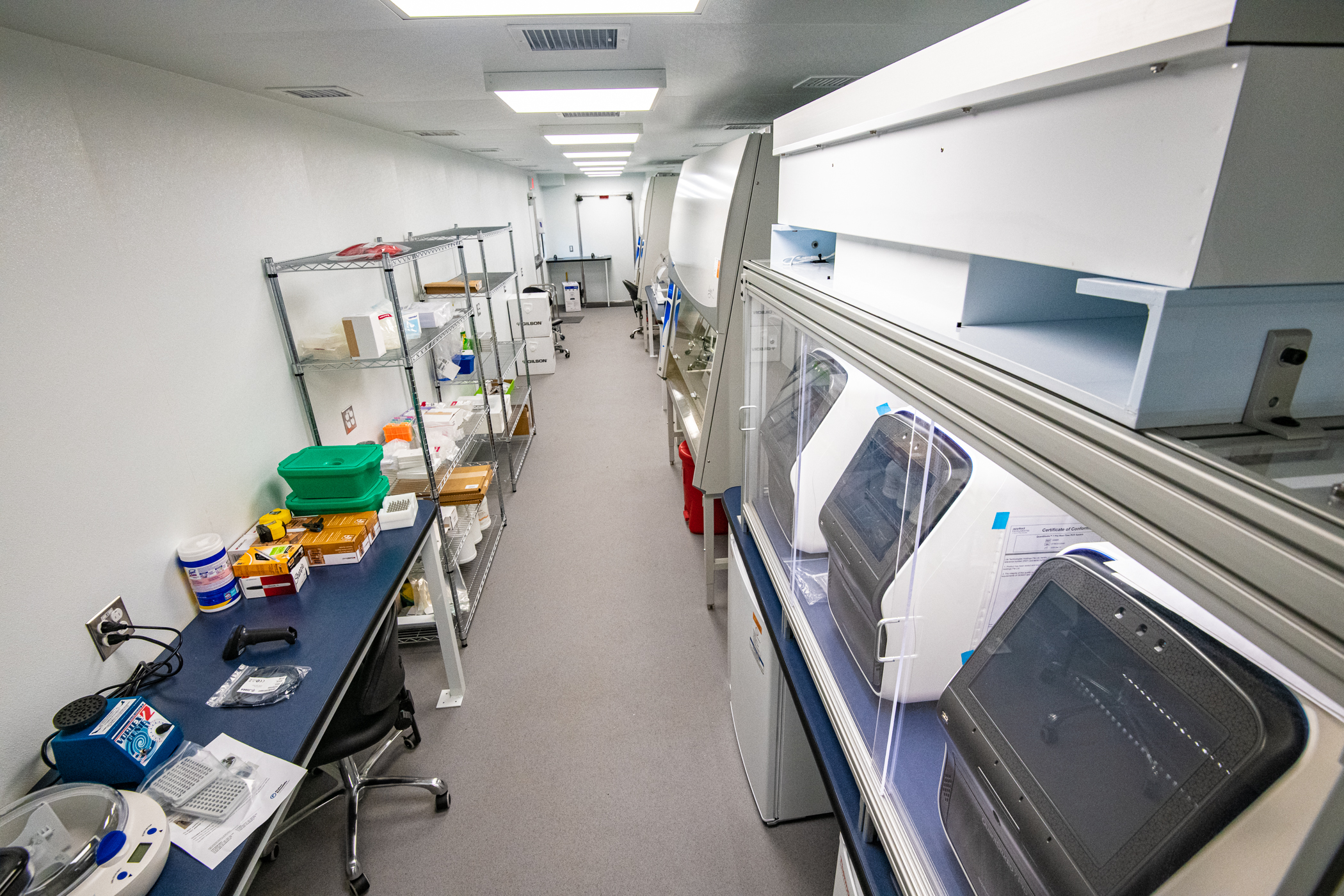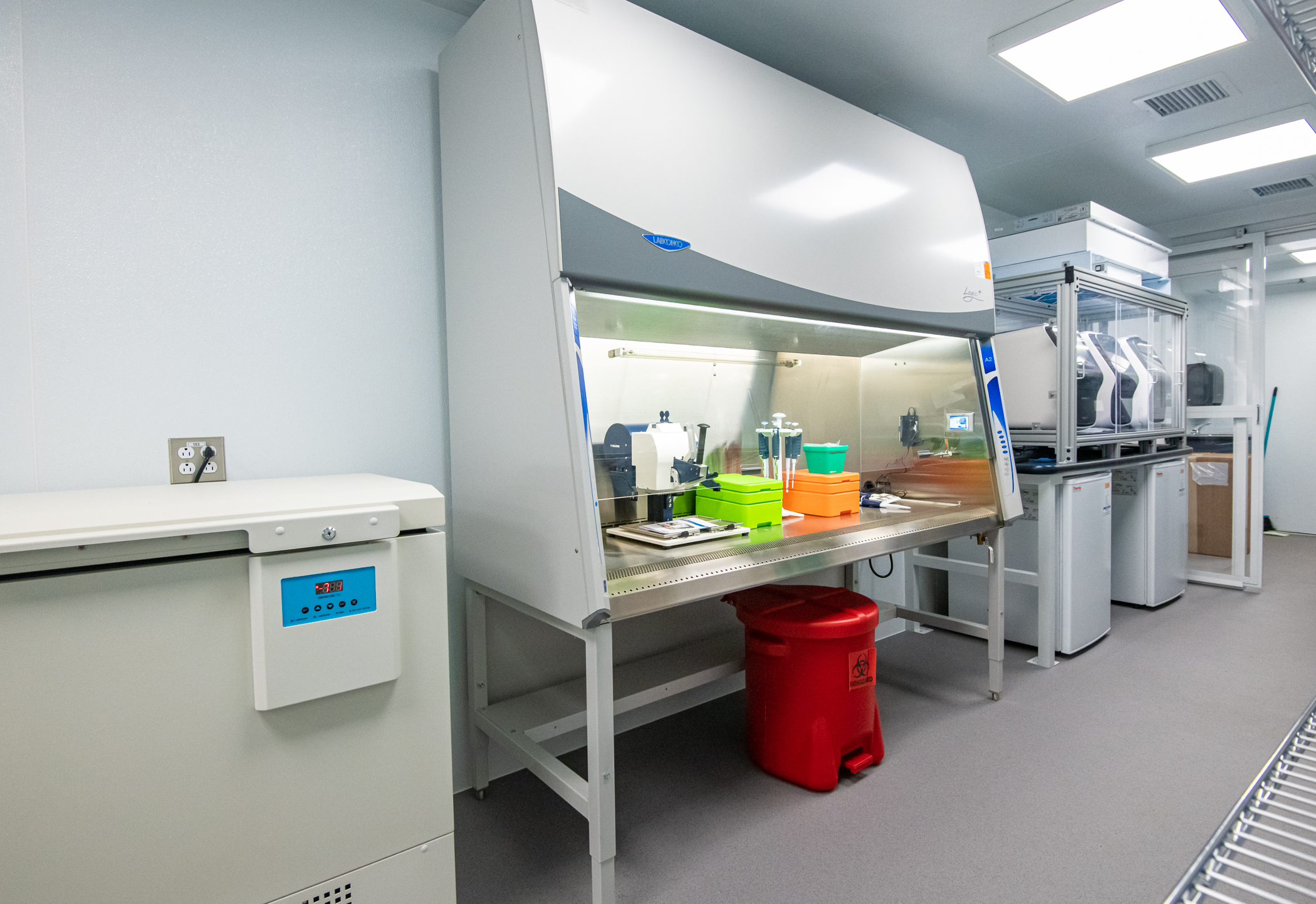Colleges, universities and K-12 schools that have remained open and kept COVID-19 positive case counts low credit a number of measures, including social distancing and mask wearing. But perhaps the most effective and most reassuring component has been testing.
When it can be done quickly and frequently, it can be a difference-maker not only in maintaining operations but also in keeping individuals and communities safe.
On Wednesday, four Washington, DC-area universities announced a new strategy to get out ahead of the potential spread of coronavirus. In cooperation with Baltimore City Public Schools and the Consortium of Universities of the Washington Metropolitan Area, they are launching a saliva-based mobile testing laboratory that will be housed at Gallaudet University.
“Gallaudet University is honored to host the mobile laboratory on our bilingual campus,” said President Roberta Cordano. “This brings us one step closer to stopping the spread of the coronavirus and to resuming the face-to-face interaction that is so important to the vibrancy of our campuses and communities.”
Starting as early as next week, this new lab, funded by American University and supported by Catholic University of America and Marymount University along with The Rockefeller Foundation, will be taking in samples of the much quicker, more accurate and more affordable saliva tests for processing. The facility will be able to do as many as 50,000 tests per week. The four universities initially will be sending as many as 5,000.
“Robust COVID-19 testing is essential to the health and safety of the American University community and the entire D.C. region,” said Sylvia Burwell, President of American University and former Secretary of the U.S. Department of Health and Human Services. “Bringing together universities, K-12 schools, and community organizations to provide testing will increase knowledge about the virus, help prevent further community spread, and advance in-person activity. By utilizing the diverse expertise of the collaborating institutions, we can address critical public health needs and support the communities where we live, work, and learn.”
Fast, quick and accurate results
The mobile lab, stationed at Gallaudet, will be crucial in providing comfort and a path to further reopening for Baltimore City Schools, which also will be sending its samples from faculty, staff and students. The saliva tests provide a much easier and less invasive way for high school students to get tested. Individuals simply can provide saliva into tubes that then will be given to the Gallaudet lab by school site coordinators. When they drop off samples, they can also pick up collection samples free of charge.
“The health screenings developed through Consortium are the early detection system that we need to assure families and staff that our learning spaces are safe,” said Dr. Sonja Brookins Santelises, CEO of Baltimore City Public Schools. “We are pleased to partner with the Consortium and support this important work.”
The PCR test, developed through a partnership with the University of Illinois, provides for fast results – just eight hours from the time it arrives at the lab. Its accuracy is among the best of tests out there – it looks at three genes present in the virus and can even detect some of the UK COVID variant, which has been difficult to pinpoint in other one-gene tests.
“Expanding Marymount University’s COVID-19 testing to include asymptomatic community members this past fall was key in allowing our institution to continue to remain open for both in-person learning and on-campus living,” said Dr. Irma Becerra, President of Marymount University. “As we edge closer to more widespread vaccination opportunities later this year, rapid and accurate testing remains crucial to protecting our students, faculty, staff and community partners.”
John Garvey, president of Catholic University, said the hope is that “more partners will join us to help keep our community safe and healthy. By working cooperatively to create access to testing that is quick, accurate, and affordable, we will curtail the spread of the virus among our students and our neighbors.”
Likewise, Andrew Flagel, President and CEO of the Consortium, which represents 17 institutions, hope others will join in the program, especially secondary schools.
“We have worked hard to make testing widely available to the community through the universities we serve,” Flagel said. “We ask any schools interested in participating to contact us.”








